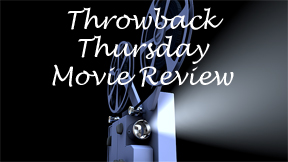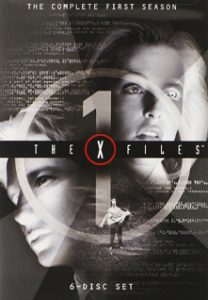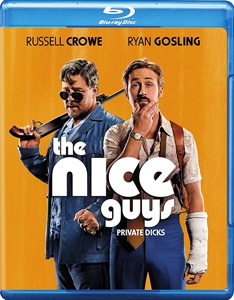“The Nice Guys” (2016) is an entertaining action thriller even if a viewer isn’t already a fan of director/co-writer Shane Black. Viewed through the lens of his oeuvre, though, it plays as the culmination of concepts he’d been fine-tuning going back to his first credit, 1987’s “Lethal Weapon.”
Blackian traits in place
All of the Blackian traits we’ve come to love are in place, melded together with panache: two ironically well-matched partners, mystery plots filled with more real-life randomness than what most screenwriters use, a child who plays a major role without being one of those annoying movie kids, and a thematic point that’s almost snuck into the story … plus, just a dash of Christmas (a very small dash at the end, in this case).
Co-written by Anthony Bagarozzi, this 1978-set film pairs Ryan Gosling’s Holland March with Russell Crowe’s Jackson Healy. Gosling is at the height of his powers, starring in a second masterpiece, “La La Land,” the same year. And it’s an ideal comeback vehicle for Crowe, who had been slumping – similar to what Black’s “Kiss Kiss Bang Bang” (2005) did for Robert Downey Jr.

“The Nice Guys” (2016)
Director: Shane Black
Writers: Shane Black, Anthony Bagarozzi
Stars: Russell Crowe, Ryan Gosling, Angourie Rice
Holland is a mediocre-to-bad detective while Jackson “sends messages” (beats people up) for money. Black doesn’t settle on a convenient reason for them to team up – such as a professional (as in “Lethal Weapon”) or common-interest (“The Long Kiss Goodnight”) reason. Instead, the duo’s good values – buried as they may be – keep them sleuthing toward the solution together.
The mystery starts in thin but intriguing fashion, as a woman thinks her niece is alive even though her death has been widely reported. Did the woman mistake young actress Amelia (Margaret Qualley) for her niece? At any rate, bad guys are definitely gunning for Amelia, so March and Jackson search for the girl, knowing it’s the next logical step.
Qualley would later appear in “Once Upon a Time … in Hollywood” (2019), giving her roles in two of the most gorgeous-looking 1960s-70s period pieces in recent years. Amelia’s yellow dress is part of “The Nice Guys’ ” delicious pastel palette.
A side of Rice
But she’s not the youngest actress to stand out in the film. Angourie Rice, later of “Spider-Man: Far From Home” (2019), is excellent as March’s daughter. Holly criticizes her dad’s shoddy detective work and inability to hold his liquor, but she clearly takes after him: She tries to gather case-breaking information herself.
Black walks a two-hour tightrope wherein the stakes are serious yet the way the three detectives (or, perhaps, “detectives”) progress through the case is often hilarious. At one point, Holly throws coffee on a villain, a move so ineffective that the villain stops to comment on it. But then the villain slips in the spill, hits her head and is knocked unconscious.

Our “Rosencrantz and Guildenstern”-style heroes catch some breaks, sure, but a lot of the comedy comes from their mistakes. Among my favorites: March cleverly deduces that Amelia’s scrawled note indicates an apartment building. But he has overthought it: They were right the first time; the note indicates the airport. Another guffaw comes when March tosses a gun to Jackson in the heat of a shootout, but he overthrows the firearm out a window.
In most of his films, Black to some degree makes fun of the very story he’s writing, but “The Nice Guys” is his most clever overall dig at the detective genre.
On a more traditional level, we enjoy the way Gosling and Crowe play off each other. For example, March rejects the notion of just following orders by noting that “Hitler just followed orders.” This is followed by a look from Jackson and a confident nod from March – wonderful, unspoken humor.
Among his funniest
So is this Black’s funniest film? Well, I’d argue that “Kiss Kiss Bang Bang” is more randomly and wildly funny and “The Nice Guys” is funny in a more pointed and subtle way.
“The Nice Guys” features familiar through-lines that gain poignancy because of the actors’ quality; by the end, it truly is important to Jackson that Holly thinks he’s a nice guy.
Plus, there’s the ultimate reason behind the killings: auto-industry corporatism that’s keeping the air more polluted than it needs to be. This paves the way for a gag only possible in a period piece: March’s confident (and hilariously wrong) assertion that we’ll all be driving Japanese electric cars by 1983.
“The Nice Guys” is Black’s unqualified masterpiece, featuring all of his personal tropes in synchronicity. It’s a pleasure to watch as a piece of crime/mystery/action entertainment but also as cinematic art from an auteur who has crystalized his style.

